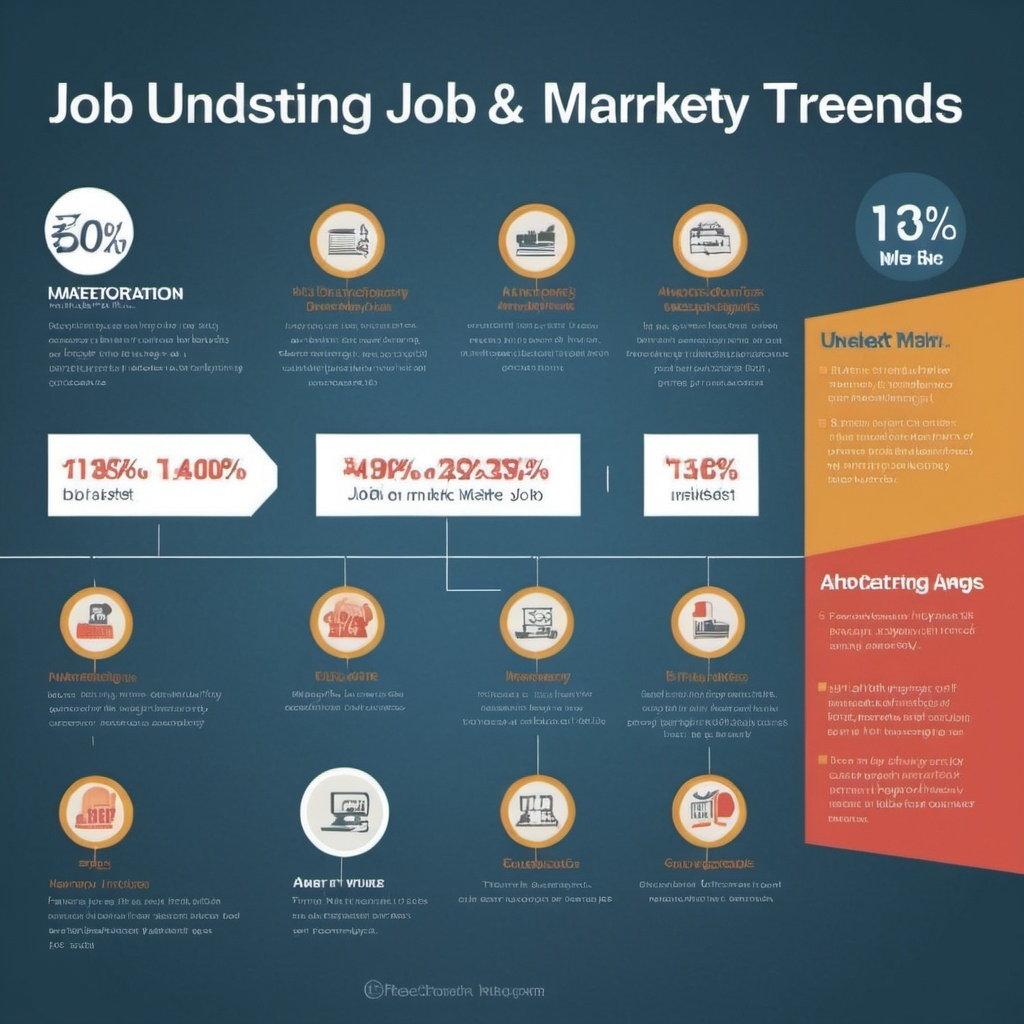Staying informed about job market trends is essential for making strategic career decisions. Each industry evolves differently, influenced by economic factors, technological advancements, and consumer demands. Here’s a guide to understanding job market trends by industry:
1. Technology
The technology sector continues to experience rapid growth, driven by innovations in artificial intelligence, cybersecurity, cloud computing, and data science. As businesses increasingly rely on digital solutions, the demand for skilled professionals in software development, IT infrastructure, and data analysis is soaring. Staying current with technological advancements and acquiring relevant certifications can significantly enhance your career prospects in this dynamic industry.
2. Healthcare
Healthcare remains one of the fastest-growing industries, fueled by an aging population and advancements in medical technology. Careers in nursing, telemedicine, and healthcare administration are in high demand. Additionally, the push for mental health services and public health initiatives is creating new opportunities. For those interested in healthcare, specialized training and certifications are crucial for staying competitive in this expanding field.
3. Renewable Energy
As the world shifts towards sustainability, the renewable energy industry is booming. Careers in solar energy, wind power, and energy efficiency are seeing significant growth. The demand for engineers, technicians, and project managers in this sector is expected to rise as governments and businesses invest more in green energy solutions. Professionals in this field should focus on gaining expertise in sustainable technologies and environmental regulations.
4. Finance and Fintech
The finance industry is evolving rapidly, particularly with the rise of fintech—technology-driven financial services. There’s increasing demand for professionals with expertise in blockchain, cryptocurrencies, data analysis, and financial regulation. Traditional finance roles, such as investment banking and accounting, are also adapting to new technologies. Keeping up with financial technology trends and regulatory changes is essential for career advancement in this sector.
5. Manufacturing
The manufacturing industry is undergoing a transformation with the adoption of automation, robotics, and advanced manufacturing techniques like 3D printing. While traditional manufacturing jobs may decline, there’s growing demand for roles that focus on operating and maintaining new technologies. Skills in engineering, supply chain management, and quality control are becoming increasingly valuable. Professionals should consider gaining experience in smart manufacturing and industrial automation.
6. Education
The education sector is shifting with the rise of online learning and educational technology. There’s a growing need for professionals who can develop and implement digital learning tools, as well as those who specialize in curriculum design and educational consulting. Additionally, the demand for teachers, particularly in STEM subjects and special education, remains strong. Staying updated on educational technology and teaching methods is key to success in this industry.
7. Retail and E-commerce
The retail industry is rapidly changing, with e-commerce continuing to outpace traditional brick-and-mortar stores. Careers in digital marketing, supply chain management, and customer experience management are in high demand as companies focus on online sales channels. Understanding consumer behavior, data analytics, and digital platforms is crucial for those looking to thrive in retail and e-commerce.
8. Real Estate and Construction
The real estate and construction industries are influenced by economic cycles, demographic changes, and urbanization trends. While traditional roles in real estate sales and construction management remain important, there’s growing interest in sustainable building practices and smart city developments. Professionals should focus on green building certifications and urban planning knowledge to stay competitive.
Conclusion
Understanding job market trends by industry is vital for making informed career choices. Whether you’re in technology, healthcare, renewable energy, or any other field, staying informed about industry developments and acquiring relevant skills will help you navigate the job market successfully. By aligning your career path with emerging trends, you can position yourself for long-term growth and success in your chosen industry.

